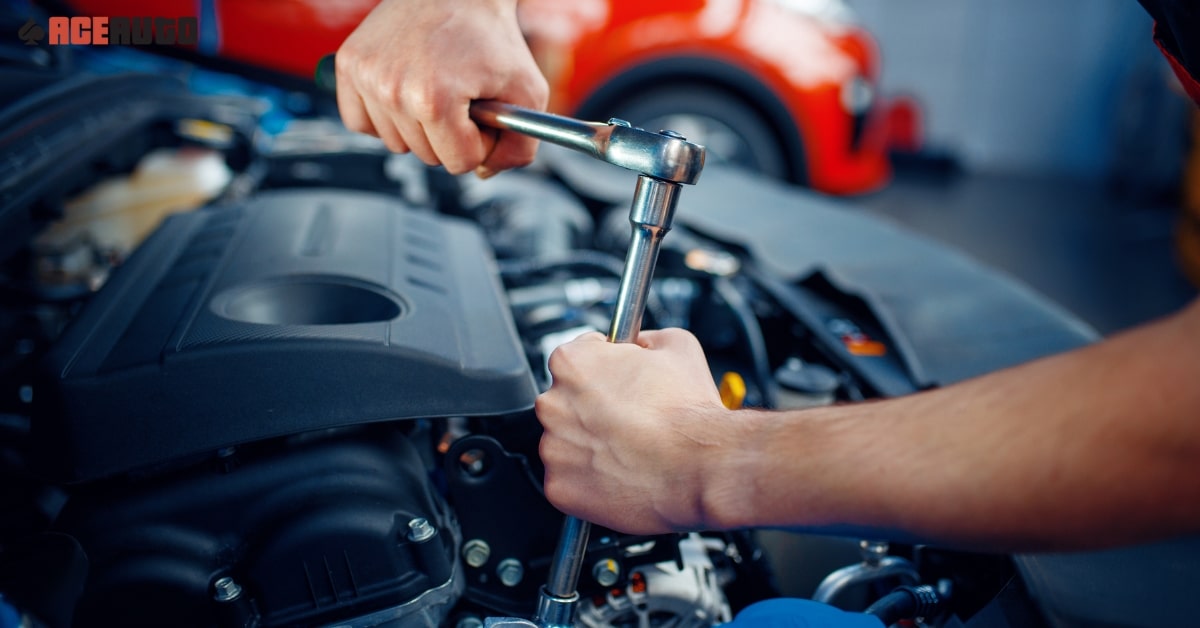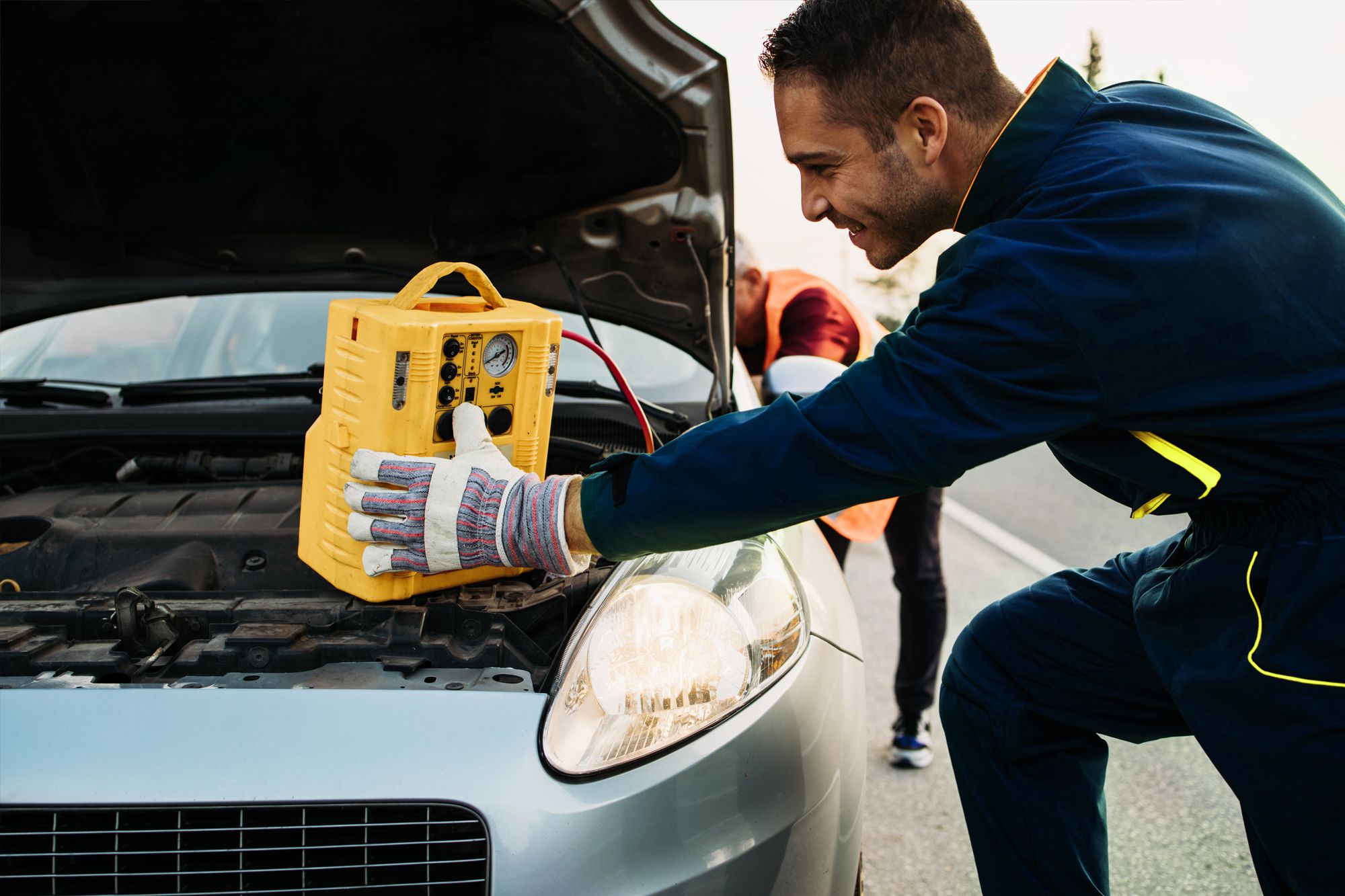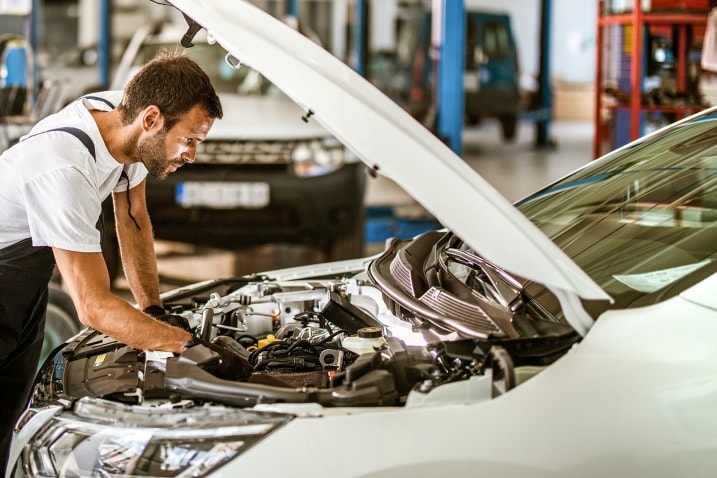All Categories
Featured
Your automobile depends on numerous fluids to keep its elements running smoothly and effectively. Understanding the role of each fluid and staying proactive in maintenance ensures your vehicle operates at its best.
![]()
Why It Issues: Without appropriate lubrication, engine components can grind against each various other, bring about substantial damages. Maintenance Tips: Examine your oil level monthly making use of the dipstick and complement if required. Replace the oil and filter according to your automobile's solution schedule, generally every 3,000 to 7,500 miles depending on the oil type and driving problems. 2. Coolant: Regulating Engine Temperature Level. Coolant, additionally recognized as antifreeze, assists keep your engine's temperature within the optimal range. It protects against overheating throughout heat and cold during cool conditions.
Why It Issues: Degraded or insufficient coolant can bring about engine overheating, which can create severe damages. Maintenance Tips: Inspect the coolant reservoir frequently and seek leakages or discoloration. Flush and fill up coolant as suggested, usually every two to 5 years. 3. Brake Liquid: Trusted Stopping Power. Brake liquid is essential for your car's stopping system, transferring the pressure from your foot on the brake pedal to the brakes themselves. Over time, brake liquid can absorb dampness, which decreases its effectiveness.
Why It Issues: A compromised braking system can drastically influence your security. Upkeep Tips: Check the brake liquid storage tank and make certain the level remains within the indicated array. Change the fluid every 2 to 3 years or as required. 4. Transmission Liquid: Smooth Gear Shifts. Transmission fluid lubricates the transmission elements and ensures seamless gear adjustments. It also avoids getting too hot by cooling the system.
![]()
Why It Matters: Neglected transmission fluid can bring about gear slippage, overheating, or even overall transmission failure. Maintenance Tips: Screen the fluid's degree and problem frequently. Change it according to the maker's suggestions, commonly every 30,000 to 60,000 miles. 5. Power Guiding Liquid: Simple And Easy Maneuvering. Power guiding fluid helps in precise and smooth guiding. Reduced or contaminated liquid can make guiding a lot more challenging, placing pressure on the system.
Why It Matters: Poor steering responsiveness can compromise your control over the automobile. Upkeep Tips: On a regular basis check the fluid degree and color, and leading it off as required. Listen to leaks or uncommon steering sounds. 6. Windshield Washing Machine Liquid: Clear Visibility. While it doesn't influence efficiency, windscreen washer fluid is necessary for preserving visibility, specifically in adverse conditions.
![]()
Why It Issues: A clean windscreen ensures you can see clearly, minimizing the danger of accidents. Upkeep Tips: Refill the washing machine fluid reservoir regularly and utilize a formula suited to your environment to avoid cold or streaking. Why Normal Fluid Upkeep is Important. Optimal Efficiency: Appropriate liquid degrees and high quality make certain all systems operate efficiently. Safety And Security Assurance: Brake and power steering fluids directly affect your capacity to manage the vehicle. Expense Savings: Preventative upkeep stays clear of costly fixings by capturing potential concerns early. Longevity: Liquids in great condition help extend the life of important elements, including the engine and transmission. Quick Tips for Effective Fluid Upkeep. Adhere to the Manual: Refer to your vehicle's proprietor manual for certain upkeep intervals. Look Out for Leaks: Pools under your car can show liquid leakages that need immediate attention. Usage Recommended Products: Adhere to fluids suggested by your lorry maker to avoid compatibility concerns. Pay Attention to Indication: Control panel signals or unusual efficiency can signify liquid problems. Conclusion. Preserving your vehicle's fluids is just one of the most basic ways to keep it running effectively and securely. Whether it's engine oil, coolant, or brake fluid, each plays an essential role in your cars and truck's overall wellness. Normal checks, incorporated with timely substitutes, can prevent malfunctions, boost efficiency, and expand the life of your vehicle. Remain aggressive, and you'll appreciate a smoother and more secure driving experience for many years ahead.

- Engine Oil: The Lifeline of Your Engine. Engine oil plays an important duty in oiling the engine's relocating parts, lowering rubbing, and securing versus wear and getting too hot. Gradually, oil comes to be or breaks down polluted with debris, which can endanger its efficiency.
Why It Issues: Without appropriate lubrication, engine components can grind against each various other, bring about substantial damages. Maintenance Tips: Examine your oil level monthly making use of the dipstick and complement if required. Replace the oil and filter according to your automobile's solution schedule, generally every 3,000 to 7,500 miles depending on the oil type and driving problems. 2. Coolant: Regulating Engine Temperature Level. Coolant, additionally recognized as antifreeze, assists keep your engine's temperature within the optimal range. It protects against overheating throughout heat and cold during cool conditions.
Why It Issues: Degraded or insufficient coolant can bring about engine overheating, which can create severe damages. Maintenance Tips: Inspect the coolant reservoir frequently and seek leakages or discoloration. Flush and fill up coolant as suggested, usually every two to 5 years. 3. Brake Liquid: Trusted Stopping Power. Brake liquid is essential for your car's stopping system, transferring the pressure from your foot on the brake pedal to the brakes themselves. Over time, brake liquid can absorb dampness, which decreases its effectiveness.
Why It Issues: A compromised braking system can drastically influence your security. Upkeep Tips: Check the brake liquid storage tank and make certain the level remains within the indicated array. Change the fluid every 2 to 3 years or as required. 4. Transmission Liquid: Smooth Gear Shifts. Transmission fluid lubricates the transmission elements and ensures seamless gear adjustments. It also avoids getting too hot by cooling the system.

Why It Matters: Neglected transmission fluid can bring about gear slippage, overheating, or even overall transmission failure. Maintenance Tips: Screen the fluid's degree and problem frequently. Change it according to the maker's suggestions, commonly every 30,000 to 60,000 miles. 5. Power Guiding Liquid: Simple And Easy Maneuvering. Power guiding fluid helps in precise and smooth guiding. Reduced or contaminated liquid can make guiding a lot more challenging, placing pressure on the system.
Why It Matters: Poor steering responsiveness can compromise your control over the automobile. Upkeep Tips: On a regular basis check the fluid degree and color, and leading it off as required. Listen to leaks or uncommon steering sounds. 6. Windshield Washing Machine Liquid: Clear Visibility. While it doesn't influence efficiency, windscreen washer fluid is necessary for preserving visibility, specifically in adverse conditions.

Why It Issues: A clean windscreen ensures you can see clearly, minimizing the danger of accidents. Upkeep Tips: Refill the washing machine fluid reservoir regularly and utilize a formula suited to your environment to avoid cold or streaking. Why Normal Fluid Upkeep is Important. Optimal Efficiency: Appropriate liquid degrees and high quality make certain all systems operate efficiently. Safety And Security Assurance: Brake and power steering fluids directly affect your capacity to manage the vehicle. Expense Savings: Preventative upkeep stays clear of costly fixings by capturing potential concerns early. Longevity: Liquids in great condition help extend the life of important elements, including the engine and transmission. Quick Tips for Effective Fluid Upkeep. Adhere to the Manual: Refer to your vehicle's proprietor manual for certain upkeep intervals. Look Out for Leaks: Pools under your car can show liquid leakages that need immediate attention. Usage Recommended Products: Adhere to fluids suggested by your lorry maker to avoid compatibility concerns. Pay Attention to Indication: Control panel signals or unusual efficiency can signify liquid problems. Conclusion. Preserving your vehicle's fluids is just one of the most basic ways to keep it running effectively and securely. Whether it's engine oil, coolant, or brake fluid, each plays an essential role in your cars and truck's overall wellness. Normal checks, incorporated with timely substitutes, can prevent malfunctions, boost efficiency, and expand the life of your vehicle. Remain aggressive, and you'll appreciate a smoother and more secure driving experience for many years ahead.
Latest Posts
Experience the Boogaloo: Dining, Drinks, & Sports at FunCity Resort
Published Jan 20, 25
2 min read
Experience the Bath Fitter Difference
Published Jan 20, 25
1 min read
Boost Your Home with Custom Area Rugs from Flooring Orland Park
Published Jan 20, 25
2 min read